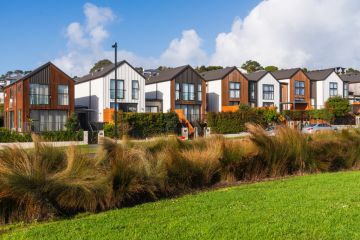Establishing a home buyer budget

There are many costs associated with buying a new home. They include both upfront costs (pre-purchase and the purchase itself) and ongoing costs (for as long as you own the home).
Upfront costs include:
- deposit
- stamp duty
- legal and conveyancing fees including government fees
- mortgage and lender fees including mortgage registration fee and lenders mortgage insurance (if you borrow more than 80 per cent)
- building inspection fees (optional but highly recommended)
- valuation fees (optional but highly recommended)
- buyer agent’s fees (optional)
- moving fees.
Ongoing costs include:
- interest and loan repayments
- maintenance
- insurance
- council rates and/or strata rates
- utilities – electricity, gas, water, phone and internet
- renovations (optional)
- potential increases to interest rates.
Don’t forget to factor in all your other household expenses including food, car, travel, clothes, entertainment and leisure, school fees, sports and activities and so on. ASIC’s MoneySmart website has some good tips to consider when buying a new home.
When putting together a budget, CPA Australia’s Paul Drum advises buyers to be realistic. “While purchasing a home can be an emotional decision, have a pre-set limit as to what you are willing to spend as this will help you focus on what you can afford and reduce the risk of going over budget.”
It’s also prudent to accumulate some additional savings to act as a buffer against unexpected expenses. Obviously, the more you save before your purchase, the less you will need to borrow and the less your ongoing repayments will be. See our tips on saving for your new home.
Keeping track of your budget
Drum has a few tips for managing your day-to-day finances, including home repayments:
- Set a maximum spend each week or month, including loan repayments, and keep records to track your performance against that target.
- Lower the limit on your credit card so you don’t go over the top with spending.
- Regularly review your savings account and your home loan account online to make sure you can meet all your expenses.
Using an online calculator is a quick and easy way to ensure you are keeping to your planned budget. You can work out what your loan repayments will be with our loan repayment calculator, and manage your day-to-day budget with the budget calculator. Domain also has a mortgage calculator and a borrowing power calculator.
An existing equity base
If you already have an equity base, for example if you’ve decided to upgrade to a new home, then you’re already in a strong position.
Assuming you will sell your existing house to assist the purchase of a new house, Drum says, “You should first work out realistically how much you will get for your existing house and deduct how much you will have to repay your lender and any outstanding taxes.
“The next step is to take your financial information to potential lenders to work out how much you can borrow and then consider how much you feel comfortable borrowing. For many people who have substantially paid down their mortgage, they will find that they have a relatively large amount of funds potentially available to purchase their next house; however, like a first home buyer, they need to create a budget to determine what they are comfortable borrowing.”
Drum’s advice is to beware the following (potential) pitfalls:
- overestimating what you will get for your existing house or not factoring in any difficulty in disposing of it
- not factoring in the repayments for your current home loan
- overextending yourself financially because you can provide a large deposit
- not factoring stamp duty and other purchase-related costs into your budget
- not putting aside money to cover capital gains tax if the house you’re selling was a holiday house or was at any time rented out.
If you plan on keeping your original home while purchasing a second, there are number of financial and taxation issues involved. We recommend seeking professional advice to ensure you manage these correctly.
We recommend
States
Capital Cities
Capital Cities - Rentals
Popular Areas
Allhomes
More







